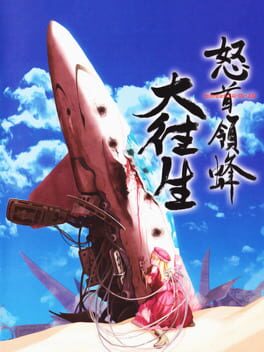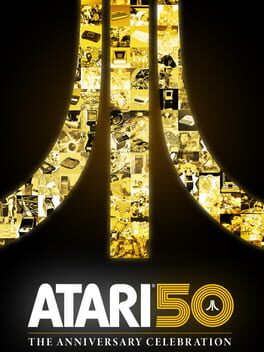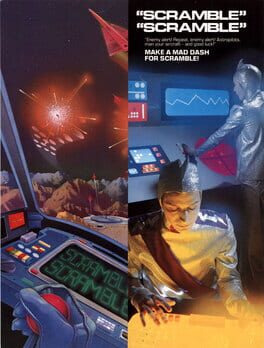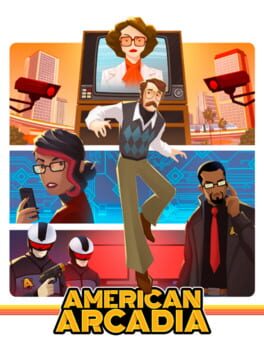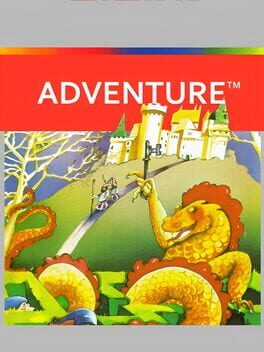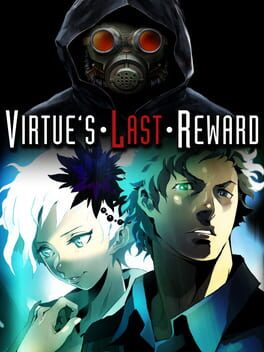rubenmg
1-2 stars: don't like
3-5 stars: like
Anything with 5 stars could be on Favorites.
Badges

Treasured
Gained 750+ total review likes

GOTY '23
Participated in the 2023 Game of the Year Event

Gamer
Played 250+ games

Pinged
Mentioned by another user

Famous
Gained 100+ followers

Gone Gold
Received 5+ likes on a review while featured on the front page

On Schedule
Journaled games once a day for a week straight

GOTY '22
Participated in the 2022 Game of the Year Event

Listed
Created 10+ public lists

Shreked
Found the secret ogre page

Roadtrip
Voted for at least 3 features on the roadmap

Organized
Created a list folder with 5+ lists

Best Friends
Become mutual friends with at least 3 others

Donor
Liked 50+ reviews / lists

Adored
Gained 300+ total review likes

Busy Day
Journaled 5+ games in a single day

3 Years of Service
Being part of the Backloggd community for 3 years

Trend Setter
Gained 50+ followers

GOTY '21
Participated in the 2021 Game of the Year Event

Loved
Gained 100+ total review likes

N00b
Played 100+ games

Well Written
Gained 10+ likes on a single review

Popular
Gained 15+ followers

Liked
Gained 10+ total review likes

GOTY '20
Participated in the 2020 Game of the Year Event

Noticed
Gained 3+ followers
Favorite Games
429
Total Games Played
044
Played in 2024
000
Games Backloggd
Recently Played See More
Recently Reviewed See More
Esto se debe a que es un juego devorado por el mercado, por la tendencia, por la mentira, por hacer porque sí, por ser rentable, porque no cree que los humanos tengan nada que hacer por gusto, porque cree que cualquiera se vende o como poco se acaba engatusando por el mal. En esta secuencia de créditos con tono burlón y desesperanzador, el punto de miseria más alto es uno inesperado y accidental. Entre los mensajes de agradecimiento de los desarrolladores, por lo general nada fuera de lo normal, uno de ellos dedica unas palabras muy sentidas a su madre fallecida recientemente. Después de tantas horas de falsedad choca ver un acto tan escondido y tan humano de la nada, que tarda poco en desaparecer de pantalla mientras una versión ensalzada de ironía de la canción recurrente principal sigue sonando, mientras las imágenes de fondo y la escena post créditos se suceden perpetuando que el ser humano no importa y que no tiene capacidad de empatía ni de amor.
It is curious for Colossal Cave Adventure to be one of the main sources of inspiration. It isn’t unexpected that it was taken as a source, as there must not have been many successful examples at the time in the search of adventure, but in how the paths diverged, almost reactionary. Adventure gets rid of words altogether to commit to a total physical world. Consequently, contrary to what abandoning immediate realism may imply, the world of Adventure becomes much more intuitive and believable. There is no longer the conflict of having to puzzle out what kind of commands a word processor is able to understand or not in order to move forward, there is instead the discovery of a system that, while allowing itself to be much simpler, is also much more transparent.
You can grab objects and drop them, birds can also carry (and steal) objects, magnets attract objects contained in the same screen, bridges allow you to cross walls (or whatever they are)... All these rules are not broken at any time and lead to a world that, as Tim Schafer says in the Atari 50 Collection, seems alive, that is able to exist even if the player is not present. Thus, birds can carry away a dragon, a key, a magnet attracting a key, or the player can peek sections of the world while traveling defeated in the belly of a dragon. This contributes in two areas: one of wit from being able to use the available elements in our favor to avoid or tackle obstacles, and another of unpredictability, chaos and life, because given the rules the dislocations of all the elements throughout the map during the game are more than certain. There is always a factor that requires improvisation while continuing the discovery.
It’s difficult to explain how well Adventure applies multiple abstractions to its advantage since many of them have been irremediably absorbed by everything that would come after. As Terry Cavanagh understood in Mr. Platformer, paying homage to similar early titles such as Atari 2600’s Pitfall or Montezuma’s Revenge, these first videogame steps that began to understand abstraction also began to use it as a liberating language. Where entering through a door into a fortress was teleporting into a labyrinth, moving past the edge of the screen was discovering a new piece of the world and doing so repeatedly on the same side discovered a spatially impossible loop.
It's a process of genuine discovery because it doesn’t attempt to clumsily replicate reality, but rather to discover new ways of navigating, interacting and understanding a world. And in the face of all these new, impossible and abstract forms remains a strong, direct and unmistakable sensation: Adventure.
This should not be a problem, as the games seem to be somewhat aware of the condition of those characters, so everything is directed towards conversations that seek to create enigmas, explain them (or try to) and play with ambiguities. That is, they don't so much seek to be emotional games (luckily, seeing the messy occasional attempts) as intelligent games, which is why they don't shy away from including escape rooms, puzzles and frequent scientific or philosophical references with explicitly cheeky quotes. But they are not smart games.
The deficiency in creating good riddles contained in the escape rooms is more severe, although more concealed, in the main plot. One expects the revelations to show the connections hidden under our noses all this time, but it isn’t like that, particularly in Virtue's Last Reward. Ideas simply succeed one another, none of them particularly imaginative, surprising or interesting on their own or in their cohesion and evidently discrepant when the biggest surprises are revealed, even trying to exemplify them by clarifying small forgettable enigmas without being able to avoid raising at least two major contradictions on the core plot in the process. As you understand more, you also wonder if all this is going to go anywhere. If the component of intrigue, of tension, of intelligence, of emotion, of surprise, if all this and more, has been lost, what is left?
The first installment ended with an ending that, although it came too late and too clumsy, at least achieved something, literalizing a scientific hypothesis into something convincing for its fiction. It made you want to see what more was there to say about it, what could be explored once this hypothesis had materialized, how far could it go.
In Virtue's Last Reward, it is made clear that there was nothing more to say. It tells what is already known and the little that is not, or was less obvious, such as to what extent future actions can have unexpected repercussions on this intricate temporal system, is again greatly reduced in comparison to everything else that gets in the way. Even its worsened structure is surprising. This one, at first appearance more accurate, stating when the story branches and when it reaches different places, loses completely in tension.
Some mystery was preserved in the first game when deciding which teams would go where and how they would be formed, even more so when, being a first entry, anything could still happen. There was no guarantee that a fortuitous decision could not lead to a bad end, and in fact that was often the case in the long run. The structure of Virtue's Last Reward clarifies that it's not so much about choosing as it is about exploring, yet it still feels distracted. The door decision system is both more confusing and more boring, but the final straw comes in the voting ramifications. Something that should be a total psychological confrontation is actually revealed very quickly as a simple formality, the weight that deciding one option or another may have, no matter how much it tries to insist on the supposed human burden carried, comes to nothing.
The last ace up the sleeve to justify the mediocrities that cannot stand their own weight is that the purpose of everything was to expand knowledge horizontally, hence the tree that branches more even if it was with less interesting motives and implications. However, from such an extensive tree of knowledge, ironically, once finished exploring, you come to learn nothing.
